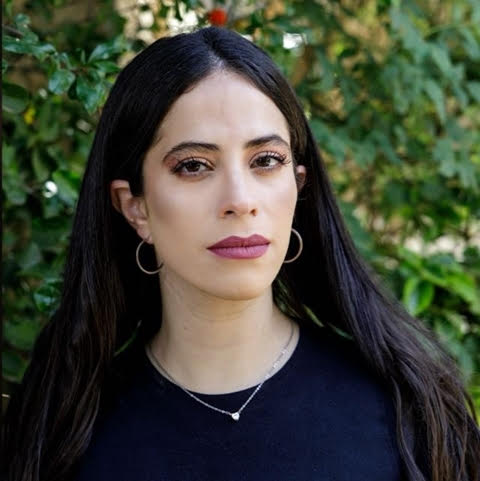Israeli ultra-Orthodox woman eyes Labour seat in April vote
- Admin

- Feb 7, 2019
- 3 min read
Updated: Sep 3, 2019
AFP, February 6, 2019
Reprinted in:
Daily Mail here
La-Croix here
EL Universo here
Borneo Bulletine here
An interview with 38-year-old Michal Zernowitski, mother of four, who is hoping to become the first ultra-Orthodox woman MP for Israel’s Labour party, and Esty Shushan, founder of Nivcharot, the first feminist Haredi movement in Israel.
TEL AVIV (AFP) – The wig and long skirt she wears are not slowing Michal Zernowitski down in her race to become the first ultra-Orthodox woman MP for the Labour party in Israel’s April polls.
The 38-year-old mother of four said with a smile that if she had run in an election a decade ago “people would have found it weird”.
But nowadays she is asked by members of the ultra-Orthodox community not why she is running, but why she is doing it for the centre-left secular Labour, the former computer programmer told AFP.
“The majority ask me, ‘Why in the Labour party, why not the right?’,” she said, speaking in English.
“But they don’t disapprove,” added Zernowitski, dressed in the customary garb of ultra-Orthodox women, who are forbidden to show their hair or display their legs in public.
The ultra-Orthodox community, known in Hebrew as haredi, constitutes about 10 per cent of Israel’s population and strictly adheres to Jewish religious law.
Representing the main haredi streams are two political parties, Shas and United Torah Judaism (UTJ), which together hold 13 seats in the outgoing parliament. Neither Shas nor UTJ have ever had a women MP.
“According to their interpretation of Jewish law, women are not allowed (to take part in governance),” said Gilad Malach, director of the ultra-Orthodox research programme at the Israel Democracy Institute think-tank.
Some of the haredi had even called for women to be banned from voting, he said.
“It’s not in the laws of Judaism, it’s conservatism; social, cultural norms,” Zernowitski argued.
“When there is something that I don’t know, I will ask (a rabbi) and sometimes ask for a blessing, but I’m not asking if I should go into politics, this is not a religious issue!”
Rabbi’s daughter
In her cramped apartment near Tel Aviv, Esty Shushan said she had consulted many religious scholars, including her father, a rabbi, and nothing in the religious texts prevents women from engaging in politics.
Six years ago she launched ‘Nivcharot’, a movement to encourage haredi women to get involved in public life.
Shushan, a 41-year-old mother of four who was married at 19, said it took time for her to realise that “unfortunately, I am a feminist”. She said she opened a Facebook page, calling on women to “stop voting for those parties that ban women from running” and that the first response she received was from Michal Zernowitski.
“I told myself, ‘I’m not the only crazy woman’,” Shushan said.
Since then she has successfully petitioned the Israeli Supreme Court to overturn a UTJ ban on accepting women as party members and has been training ultra-Orthodox women who wish to enter politics.
But UTJ said it has no intention of allowing women to run for office in the foreseeable future.
“Not placing a woman on the list (of candidates) stems from a historical decision by the most prominent rabbis,” the party said in a written response to AFP’s request for an interview on the subject.
“Even that handful of women who speak of the lack of representation for women in the party know that is not going to change in the coming decades.” Shas did not respond to AFP’s requests for comment.
The majority of haredi women are the wage earners in their families while the men spend their days studying the texts and praying. They are often exploited by their employers and neither their own parties or the non-haredi politicians speak up for them, said Zernowitski.
Slim chances
Zernowitski was a once a UTJ supporter but realised she had no political future there and in 2010 joined Labour because she found it was closer to her own political views. She founded a section within the party for the ultra-Orthodox of both sexes which now has “hundreds” of members.
She said she has the backing of her husband and her community and believes there is a new haredi generation more open to women in politics.
Malach disagreed saying they were only “a tiny minority”.
The original article at Borneo Bulletine here




Comments